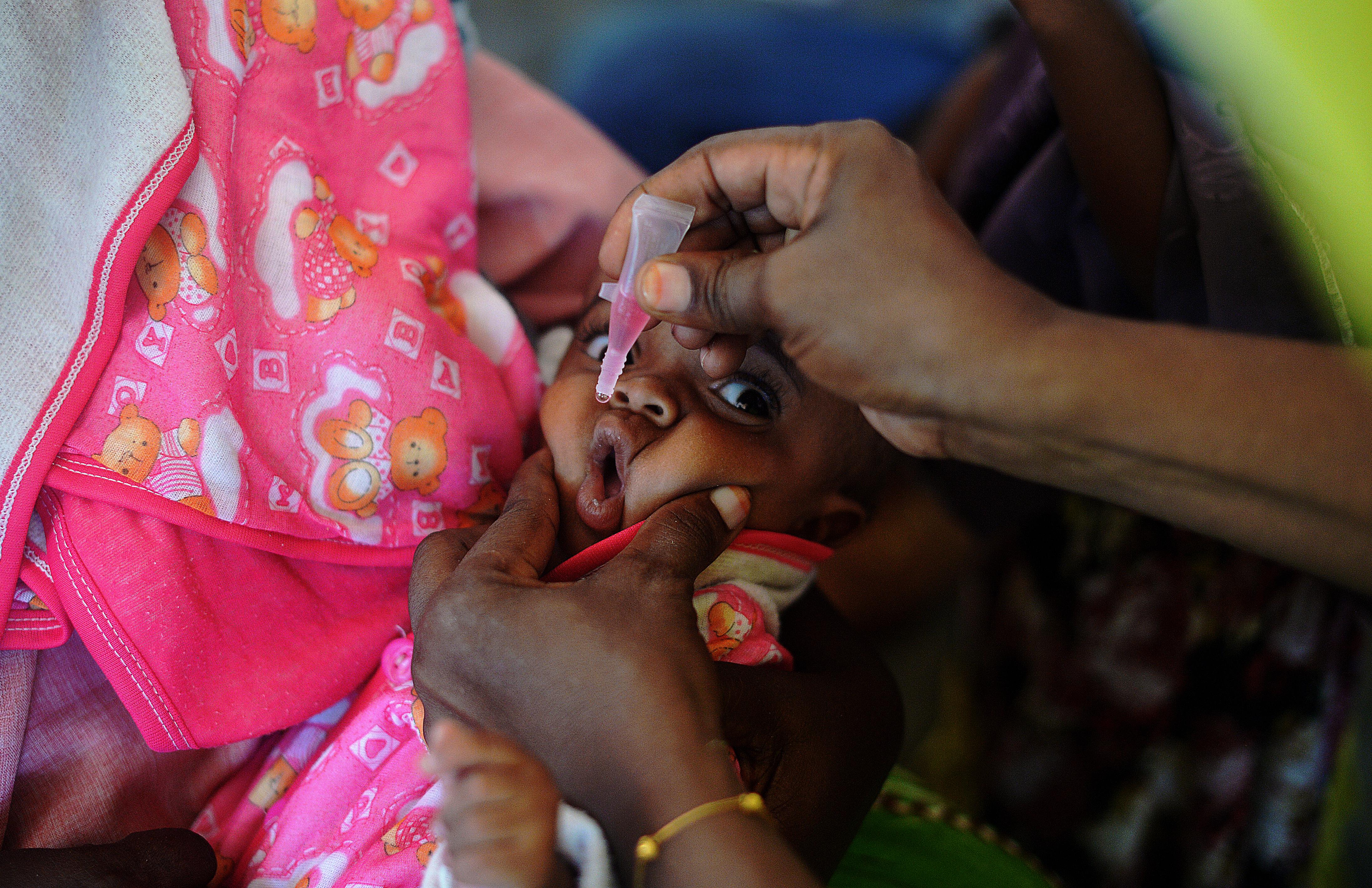With all of the news about Ebola’s rapid, dispiriting spread through West Africa, you may have missed an encouraging public health development: The continent appears tantalizingly close to fully eradicating polio, once one of the world’s most feared and destructive diseases.
A U.S. Centers for Disease Control and Prevention progress report on Nigeria released Thursday notes that just six cases of wild poliovirus have been diagnosed in the country this year, compared with 49 during the same period last year. Nigeria is considered particularly critical since, as the report notes, the country’s northern region has served as “a reservoir for WPV reintroduction into 26 previously polio-free countries.” Nigeria now hasn’t seen a case of polio since July and the African region as a whole hasn’t seen one since a case in Somalia in August.
The good news follows some other positive developments, including reports that two of the three strains of wild poliovirus have likely been eradicated and India being declared officially polio-free by the WHO. This is all welcome news given the concerns earlier this year that the disease was making a global comeback, including in several countries in Africa. Cameroon, for instance, saw a re-emergence of polio due in part to fears of vaccines and the disruption to the country’s health infrastructure caused by refugees fleeing conflict in the Central African Republic.
The most dramatic progress has come in Somalia, which saw 183 cases of polio last year and just six so far this year. This is likely due to a ramped-up vaccination effort in the country in 2014, and the weakening of the militant group al-Shabab, which was violently opposed to vaccination campaigns.
We’re not quite out of the woods yet. It takes three years without a new case for the WHO to declare a country or region polio-free, and armed conflict in places like northern Nigeria and Somalia could continue to disrupt vaccination efforts. Nigeria’s Boko Haram has gunned down polio workers in the past.
The Ebola virus has also strained health resources and made vaccination against other diseases, including polio, far more complicated in the countries where it’s raging. On the bright side, the CDC report notes that the staff and infrastructure set up to address polio in Nigeria were critical in helping the country organize its successful Ebola response.
Now, with only the African and eastern Mediterranean regions (the latter of which includes the Middle East and Western Asia) waiting to be declared polio-free, we do seem to be inching closer to wiping the disease off the planet. That would make it only the second human disease, after smallpox, to be eliminated through vaccination.*
If the trends in Africa continue, it seems likely that polio will make its last stand in either Pakistan and Afghanistan, where the Taliban have waged a campaign of terror against health workers, or in Syria and Iraq, where the civil war is helping the disease make a comeback.
*Correction, Nov. 20, 2014: This post originally misstated that polio could be the second disease eradicated through vaccination. It could be the second human disease. Rinderpest, a viral infection affecting cattle, was formally declared eradicated in 2011.
